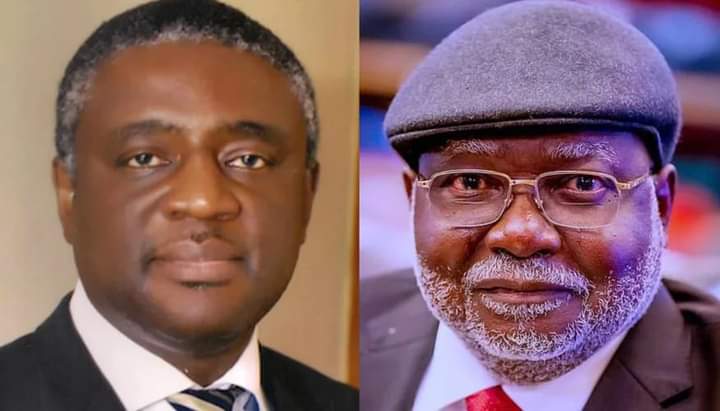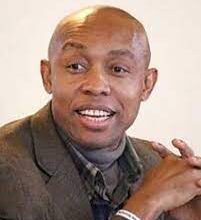ARIWOOLA AND FULFILMENT OF A DOOMSDAY PROPHECY

By Joseph Otteh
Introduction:
Giving his valedictory speech he entitled “The Imperative of An Untainted Judiciary” on January 30, 2005, Hon. Justice Samson Uwaifo expressed his worries that “… that there is need to be concerned about the lowering of standards in the Judiciary of this country… Now, there is real apprehension that the appellate court may soon be infested if not already contaminated with some of these vices.” And then he wondered: “What omen does this trend of falling standards portend for the country? First, a culture of compromises will take root in the dispensation of justice. Second, public confidence will be badly and broadly eroded. Third, democracy will suffer or can even collapse. Can we afford any of these consequences because we fail to think ahead for possible solutions to contain the situation?” As we mark Chief Justice of Nigeria (CJN) Kayode Ariwoola’s retirement from service in August 2024, we may pause to wonder where Nigeria’s Judiciary is currently sitting in Justice Samson Uwaifo’s prophecy map drawn nearly twenty years earlier.
Chief Justice Ariwoola and the Chance to Salvage a Judiciary in Deep Crisis:
To be fair, (now retired) Chief Justice of Nigeria (“CJN”) Olukayode Ariwoola [GCON] came into office as CJN when Nigeria’s Judiciary was already at crisis level, broken and enervated, mostly living off of forlorn legacies and whitewashed facades. Things had so much fallen apart that two of his predecessors in office had consecutively left office unceremoniously. Indeed, CJN Ariwoola himself may have helped in mediating the hurried departure of his immediate predecessor, Hon. Justice Tanko Muhammad [GCON] having accused him of lacking “moral rectitude”, practicing nepotism and superintending the “peak of degeneration” of the Supreme Court. Leaving office more than two years after, stock taking CJN Ariwoola’s tenure therefore, is more of a judgment of what he did– or failed to do – to rebuild a Judiciary already lying in debris and ruin.
There are a number of indicators that can be used to measure the health, efficiency or effectiveness of any judicial system. One of the most notable is the level of public trust reposed in it, by the people it serves. In an address given in 2011, former Chief Justice of Nigeria, Justice Dahiru Mustapha touched on the importance of this element, saying: “Conversely, as De Balzac warns, “the lack of public confidence in the judiciary is the beginning of the end of society”. Therefore, it is a matter of serious concern that prevalent societal currents and iniquities, including the collapse of core values such as integrity, probity, accountability, etc, have also engulfed a significant segment of the judiciary. This is sad. It is an urgent call to action.” [The Nigerian Judiciary: Towards Reform of The Bastion of Constitutional Democracy].
At the time CJN Ariwoola was sworn into office as CJN, the reputation of Nigeria’s Judiciary was mostly hanging on by a thread, and public confidence at precarious ebbs following years of scandals and deterioration. This decline was highlighted by a number of surveys, such as those by the ICPC (Nigeria Corruption Index: Report of A Pilot Survey) and the UNODC/NBS (Corruption in Nigeria Bribery: public experience and response (2017). Our Judiciary, the surveys said, was one of the most corrupt public institutions in the country. Yet, CJN Ariwoola did not feel the urge, the responsibility to provide leadership and vision to address the trust and credibility gaps between the Judiciary and people. Under him, the Judiciary remained unreconstructed and its public perception plumbed further depths.
At his valedictory session at the Supreme Court in 2023, Hon. Justice Dattijo Mohammed would state that “public perception of the judiciary [has] over the years become witheringly scornful and monstrously critical”, and that “it is obvious that the judiciary I am exiting from is far from the one l voluntarily joined and desired to serve and be identified with. The institution has become something else.” Afenifere, the pan-Yoruba socio-political group recently delivered a stinging distress call, saying that it was worried “at the dwindling image and increasing loss of confidence in the judiciary by the Nigerian people.” Former Minister of Education/World Bank Africa Region Vice President Oby Ezekwesili, recently called out Nigeria’s Judiciary as being “rotten”.
Although CJN Ariwoola accused his predecessor of nepotism, it was under his [CJN Ariwoola] leadership that his Son and Daughter-in-law became High Court Judges; that his nephew was elevated to the Court of Appeal and his junior brother appointed the Auditor of the National Judicial Council (NJC). In fact, to make way for his Daughter-in-law to become an FCT High Court Judge, rules and constitutional stipulations regarding federal character had to be bent and contravened. These claims are found in a plethora of media publications and there is no record that CJN Ariwooola refuted them. The #EndBadGovernance protest specifically included, among its demands, that the process of recruitment into the Judiciary be reformed!!! Society had been taking note of the shenanigans playing out in our Judiciary.
CJN Ariwoola’s approach to the need to restore integrity to the Judiciary by fighting corruption was no different. Corruption has given the Judiciary such a bad reputation, locally and globally, that it is staggering to wonder how the head of any Judiciary blighted by notorious perceptions of its integrity could fail to fight it under a state of emergency plan. But it was business as usual for CJN Ariwoola. Beyond the usual motions, there was neither a fight against corruption nor a state of emergency declared around it. Not only did CJN Ariwoola draw a blank in terms of fighting the plague, he actually worsened the perception of corruption, by bringing back into the Judiciary’s fold, Judges who had earlier been dismissed for corruption, and by refusing to entertain complaints requesting the NJC to investigate allegations of misconduct against other judicial officers, including himself. Alongside this, there were calls, even by SC Justices, for investigation into how budgets of the Supreme Court were being spent, distinctly raising issues of possible corruption in their use funds. CJN Ariwoola was unbothered by the allegations, and (as much as is known}, did nothing, to improve financial transparency in the use of the budget of the Court.
If public confidence is what gives the court its authority, and is the mainstay of a Judiciary’s legitimacy, how then is it possible that a Judiciary or its Chief Justice can completely numb themselves to the wailings of the people they serve, and blindfold themselves to all the red flags showing distress? At CJN Ariwoola’s inauguration in June 2022, the Nigerian Bar Association (NBA) President at the time Olumide Akpata, capturing the mood of Nigerians told CJN Ariwoola that the first task before him is “to restore public confidence in the judiciary”, saying: “There is now more than ever the need for urgent reforms in the judiciary and to rebuild the almost dissipated confidence that Nigerians have in the judiciary and the wider legal profession in Nigeria”. At her valedictory, respected Justice of Appeal, Hon. Justice Adefope-Okojie lamented the contempt that was being thrown at the Judiciary now, saying “it has been severely vilified, with the Apex Court so denigrated and called by a social commentator as a voter gaggle of useless, purchasable judicial bandits”. Continuing, she said further that “If the people we have sworn to defend have lost confidence there is a problem that must be addressed”.
That problem was not addressed. With respect to him, CJN Ariwoola chose to live in an orbit, a remote bubble where everything could float in any direction they wanted. By his turning a blind eye to the exigencies around him, a neutral observer might conclude that CJN Ariwoola was more interested in exploiting the weaknesses and frailties of the system, and profiting therefrom, than fixing them. it is unfortunate that Nigeria’s Judiciary had to pass through a leadership like his. Though it was already at breaking point and scaping the barrels by the time CJN Ariwoola took office as CJN, our Judiciary looks more ghostly and unrecognizable now than ever. Rather than reform an institution that was that was already on its knees, CJN Ariwoola plundered it further, stretching its trust and credibility gaps even farther.
Touting what he accomplished as CJN, CJN Ariwoola said, at his valedictory, that he signed a new set of Supreme Court Rules to modernize the process of appeals at the apex Court. While applauding that effort, it is simply too little to make any dent on the overall ripple of the calamity his tenure has been for the Nigerian Judiciary. In fact, to say his term as CJN was disappointing and disillusioning would be a complimentary understatement.
Conclusion:
It is no light matter to contend that the Chief Justice of a Country, the chief custodian of the trust invested in a country’s Judiciary has betrayed or debased that trust, but this happens again, and again, and again.
CJN Ariwoola has now passed on the baton, and we hope Hon. Justice Kekere-Ekun, his successor will be moved, not by the “selfism” or “complacency” of now, but the “urgency of now” towards addressing the profound needs of a judicial system that is fast approaching its own Armageddon. What the last half-decade or so has shown, is that we are in a far more precarious position now than Justice Uwaifo could have foreseen. If constitutional democracy must be meaningful for our people, Nigeria’s Judiciary must get help and get fixed. We must also reform some frameworks through far-reaching legislation. No more must we allow the Judiciary or its leadership operate within a culture that promotes power and privilege, virtually exclusively, at the expense of accountability.
- Joseph Otteh is Convener of Access to Justice, a non-profit working to promote access to justice. This article was written as Justice Olukayode Ariwoola was retiring from service.




